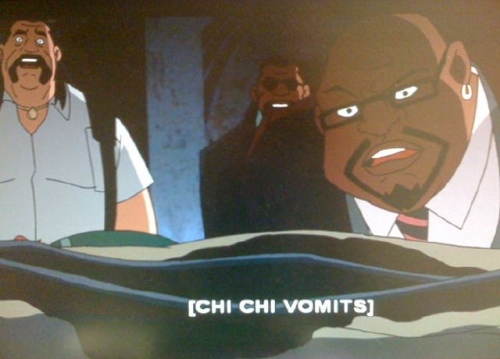
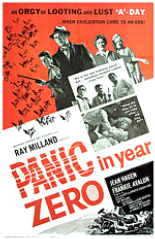 Although dated, AIP’s nuclear-family thriller Panic in Year Zero! still resonates today, and is a good candidate for remake status.
Although dated, AIP’s nuclear-family thriller Panic in Year Zero! still resonates today, and is a good candidate for remake status.
Ray Milland (who also directs), his wife and two kids are on their way to a fishing and camping trip when their hometown of Los Angeles is hit with a nuclear bomb. Civilization quickly breaks down, with price gouging and looting abound. Milland struggles to keep his family alive amidst the chaos, even though he has to clock the occasional gasoline attendant, set innocent people’s cars on fire or hold up a hardware store to do so.
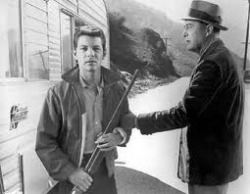 Eventually, they find relative peace and quite in a cave, but it is short-lived, as their situation soon spirals into rape and murder. Milland spends the movie barking orders to son Frankie Avalon and rarely takes off his hat and suit, despite the apparent end of the world.
Eventually, they find relative peace and quite in a cave, but it is short-lived, as their situation soon spirals into rape and murder. Milland spends the movie barking orders to son Frankie Avalon and rarely takes off his hat and suit, despite the apparent end of the world.
But he’s awesome, just as he was in other AIP greats of the time, like X – The Man with X-Ray Eyes. And despite all its moments of implausability, Panic is solid B-moviemaking, delivering thrills on a tight budget. Plus, it’s hard not to think about our world’s current situation and wonder what you would do under the same circumstances.
I’d at least ditch the tie. —Rod Lott

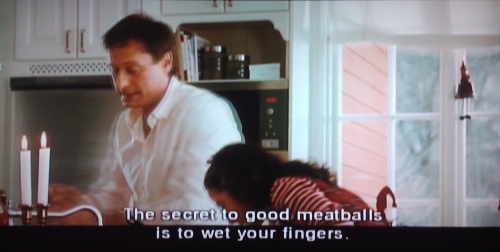

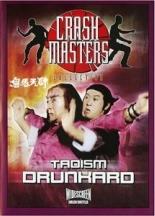
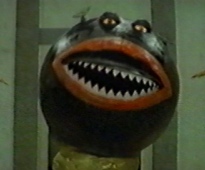 If you’re scratching your head and thinking, “How does all that come together?,” you’ve hit upon Taoism Drunkard’s major flaw: There is no story to it, making it a bit long in the tooth. It makes the Yuens’ similar (and highly recommended)
If you’re scratching your head and thinking, “How does all that come together?,” you’ve hit upon Taoism Drunkard’s major flaw: There is no story to it, making it a bit long in the tooth. It makes the Yuens’ similar (and highly recommended) 

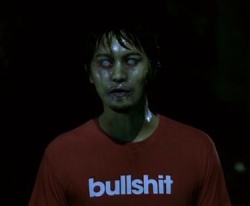 Next, a bullied youth takes revenge on his tormenters via that old black magic, followed by a campfire tale that name-drops a slew of scary movies as it pays homage to the more “spirited” ones. The campers experience real terror, but hey, at least they’re not made to “
Next, a bullied youth takes revenge on his tormenters via that old black magic, followed by a campfire tale that name-drops a slew of scary movies as it pays homage to the more “spirited” ones. The campers experience real terror, but hey, at least they’re not made to “